Hampton Roads
by John Paul Strain
Clipper Ship "Belle of the Sea"
James River - Norfolk, Virginia - 1861
She was named the "Belle of the Sea". Her bow was adorned by a beautiful maiden cradling a yellow rose. The clipper ship was long and sleek, beautiful as her name sake. She was built for speed, and often capable of reaching 20 knots, in contrast to the 5-6 knots attained by other ships of the day. At full sail her bow would neatly cleave water into mirror image waves. The ship in it's full glory was over 200 feet in length at 1255 tons, sporting a wooden hull. Fast and sleek, silent and dark at night, she was a 19th century "Flying Dutchman".
The ship was built in the New England coastal town of Marblehead, Massachusetts by Ewell & Dutton in 1857. First owned by T.B. Waters & Co. of Boston, the merchant ship traveled to many ports across the seas covering thousands of miles. The ship was eventually sold in Liverpool, England in 1864 for $45,000.
Sailors had three requirements for a clipper ship. "She must be sharp-lined, built for speed. She must be tall-sparred and carry the utmost spread of canvas. And she must use that sail, day and night, fair weather and foul." The "Belle of the Sea" was all of these.
Sailing through Hampton Roads on the James River, the "Belle of the Sea" had now returned to one of the more important ports in Virginia, Norfolk. The crew would off load and load their cargo for the next leg of the journey. It would be the last time for the ship to dock there as war would soon come to Virginia, and President Lincoln would impose a blockade of all Southern ports. This action would lead to one of the greatest naval battles in history, the Battle of Hampton Roads.
On March 8, 1862 the ironclad CSS Virginia would attack 3 Federal wooden hulled ships blockading Hampton Roads. Two of these were sunk, with the third run aground. The next day an epic battle would be fought between two ironclads, the USS Monitor and the CSS Virginia (Merrimack), and the United States Navy would carry the day.
| Style | Image Size |
| Archival Paper | 19 1/4" x 26 1/2" |
| Studio Edition | 18" x 24 3/4" |
| Classic Edition | 24" x 33" |
| Executive Edition | 29" x 40" |

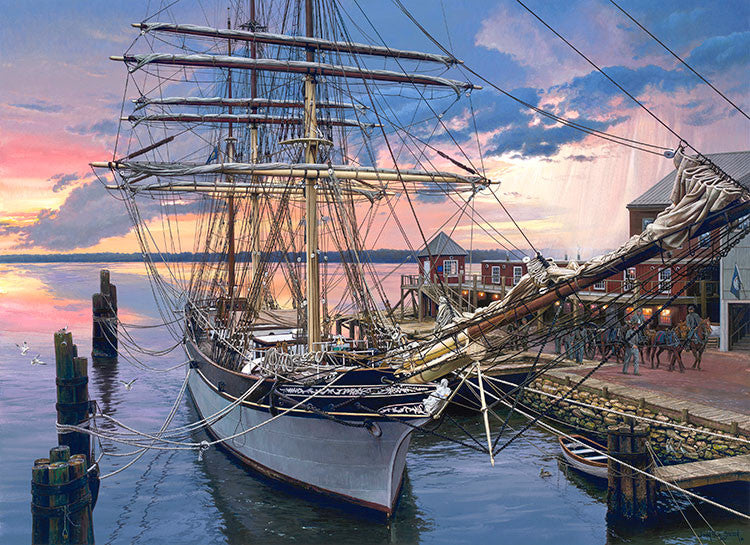
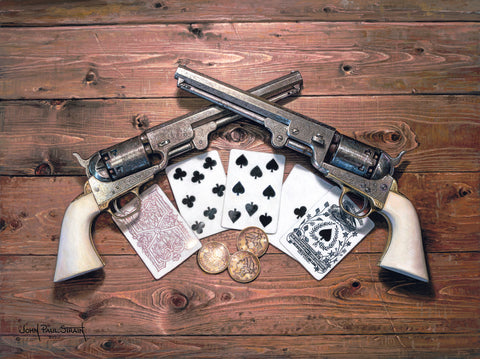
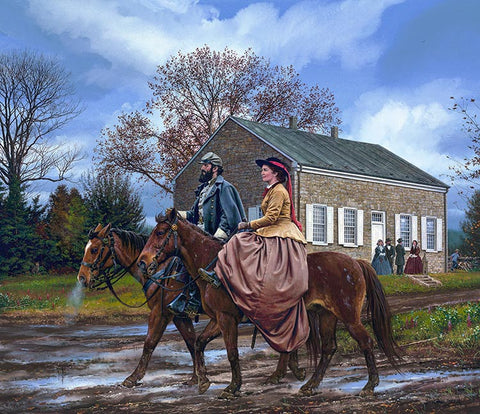
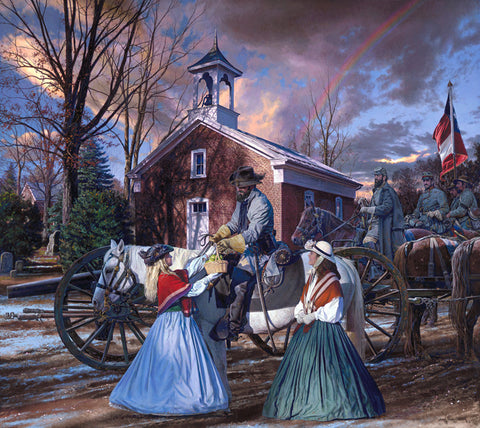
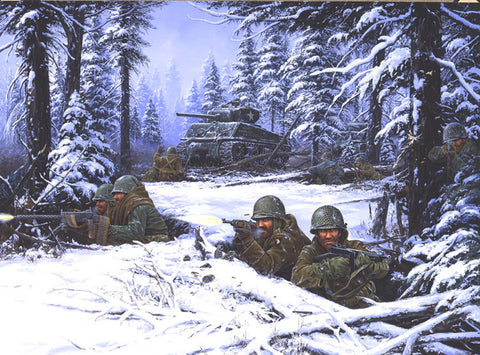
Share this item: